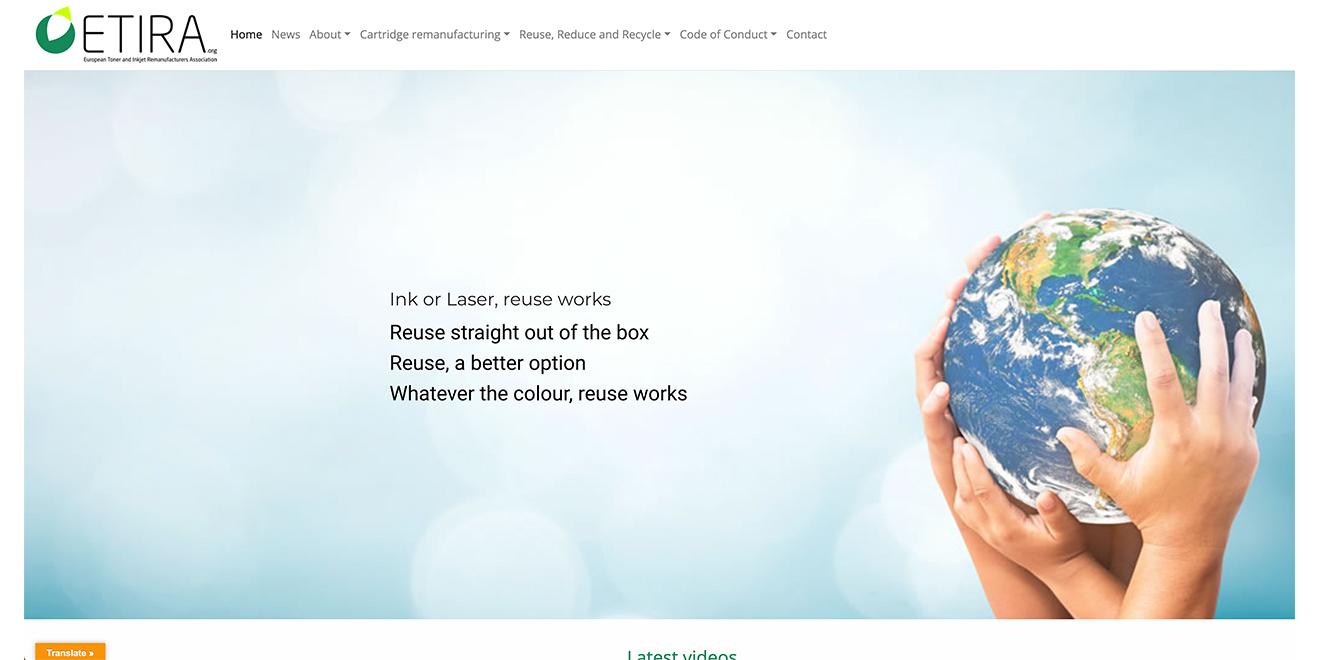 Static Control expresses serious concerns about the proposed Voluntary Agreement (VA) on Imaging Equipment that could impact on over 1,000 European remanufacturers.
Static Control expresses serious concerns about the proposed Voluntary Agreement (VA) on Imaging Equipment that could impact on over 1,000 European remanufacturers.
Static Control, the leading company in the upstream parts channel supplying the global toner and inkjet remanufacturing sector has submitted their concerns to the European Commission regarding the latest draft of the Voluntary Agreement (VA).
Their chief concern was “that the negotiations leading up to the proposal have not been sufficiently transparent and that the proposal itself distorts competition in the markets for printer consumables as well in the upstream markets for components,” and impact on “over 1,000 European remanufacturers” that the company supports.
The VA on Imaging Equipment has been proposed by 11 Original Equipment Manufacturers (OEMs) represented by EuroVAprint together with a handful of remanufacturers was submitted to the European Commission on 11 October 2020. The European Commission now has to decide whether this industry VA is a valid alternative to an implementing measure under the Ecodesign Directive.
Static raises “serious concerns both about the way the negotiations on the proposal were conducted,” and that the negotiations “have not been sufficiently transparent and that the proposal itself distorts competition in the markets for printer consumables.”
Static Control confirmed to the European Commission that they were denied a request to participate and were unable “to participate in any meaningful way in the negotiations. Commenting “the negotiations were conducted exclusively between the five OEMs that make up the board of EuroVAprint and representatives of five large remanufacturers.”
 According to Static Control the current proposal “effectively denies remanufacturers and components suppliers such as Static Control access to critical inputs, thereby restricting competition from non-OEM suppliers on the aftermarkets for printer consumables.”
According to Static Control the current proposal “effectively denies remanufacturers and components suppliers such as Static Control access to critical inputs, thereby restricting competition from non-OEM suppliers on the aftermarkets for printer consumables.”
Of particular concern is Section 9 and Annex A of the VA that sets out the criteria to become a Supporting Signatory of the VA, which a company such as Static Control is unable to fulfil.
To become a supporting signatory, companies:
- Must have “a substantial operational establishment in the EU”
- “Remanufactured Cartridges, Refilled Cartridges, Remanufactured Containers and Refilled Containers must make up at least 80% of all Cartridge and Container units produced or made available by a Supporting Signatory”
Static Control considers that these criteria “are discriminatory barriers to entry and not objectively justified having regard to the stated objectives of the VA. Access to Supporting Signatory status is absolutely critical to non-OEM suppliers’ ability to compete in EU markets for printer consumables. Without it, non-OEM suppliers have no access to critical information to ensure compatibility of their products with the OEM’s devices, nor any protection against strategies by OEMs to undermine such compatibility through firmware or software updates or other means.”
The European Commission’s Guidelines on co-operation agreements, states that “participation in an industry standard-setting process should in principle be open and transparent, i.e. it should allow all competitors and/or stakeholders affected by the standard to take part in choosing and elaborating the standard.”
Static Control commented: “The guidelines also make it clear that standard-setting agreements, such as the VA, which discriminate against participating or potential members, including upstream companies, could lead to a restriction of competition and operation of other organisations, such as trade associations, in cases where the inability to become a member is likely to distort competition.”
“In this instance, it is clear that the restrictive conditions to become a Supporting Signatory of the VA, effectively exclude a large number of remanufacturers who are active on the EU markets for printer consumables, as well as upstream components suppliers, significantly impeding their ability to compete within the EU. This distorts competition in favour of the OEMs and the small subset of non-OEM suppliers who were directly involved in the elaboration of the VA.”
“The restrictions of competition contained in the VA bear no reasonable relationship with the environmental and circular economy objectives of this agreement, and would therefore not qualify for an exemption under Article 101(3) TFEU. Indeed, Static Control fails to see why restricting access to Supporting Signatory status to companies who have a “substantial operational establishment in the EU” and/or whose business consists of more than 80% in remanufacturing or refilling consumables, would be “indispensable” to achieve the benefits pursued by the VA. On the contrary, the exclusion of a wide array of remanufacturers is likely to adversely affect the Commission’s objective to achieve a circular economy for printer cartridges. To the extent that there are legitimate reasons to apply membership criteria, such as combating counterfeiting of OEM products, these can be achieved through less restrictive means.”
Static Control considers that DG ENER should not approve the VA until, at the very least, access to Supporting Signatory status on a fair, reasonable and non-discriminatory (FRAND) basis is guaranteed for all remanufacturers as well as for components suppliers.”
Static Control urges the European Commission (DG ENER) “not to accept the proposed VA as a valid alternative to an implementing regulation at least until appropriate revisions have been made to the VA to ensure such FRAND access. Alternatively, given the impact that is likely to flow from the VA that was developed under the unfair and exclusive process described above, DG ENER should consider whether it is instead advisable to initiate a procedure under the Ecodesign Directive to ensure a fair and considered process to achieve its commendable objectives of a circular economy with respect to toner and ink cartridges.”
The Recycler recently reported that ETIRA, the European Toner and Inkjet Remanufacturers Association had said ETIRA’s preference was for “mandatory legislation to replace the Voluntary Agreement.” Because “only a mandatory approach can bring tangible and enforceable implementation of the goals defined under the Circular Economy Action Plan, because only a regulation is applicable to all market players.”




















